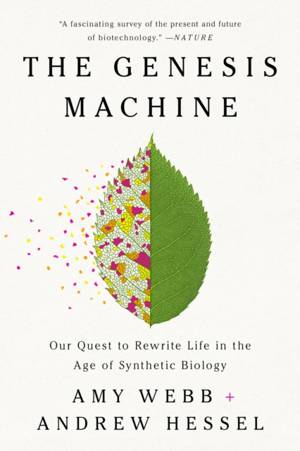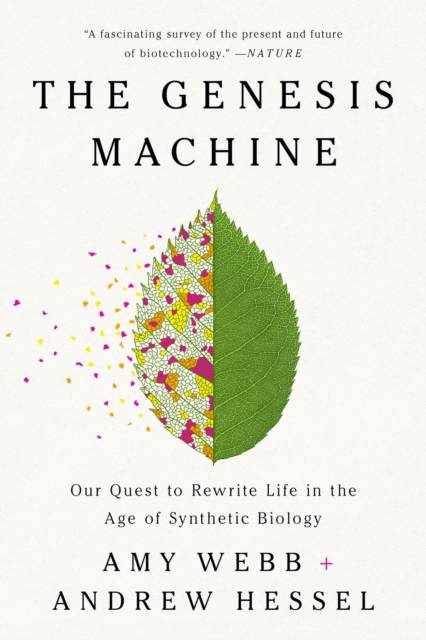
- Retrait gratuit dans votre magasin Club
- 7.000.000 titres dans notre catalogue
- Payer en toute sécurité
- Toujours un magasin près de chez vous
- Retrait gratuit dans votre magasin Club
- 7.000.000 titres dans notre catalogue
- Payer en toute sécurité
- Toujours un magasin près de chez vous
The Genesis Machine
Our Quest to Rewrite Life in the Age of Synthetic Biology
Amy Webb, Andrew Hessel
Livre broché | Anglais
23,95 €
+ 47 points
Format
Description
A breakthrough investigation of synthetic biology: the promising and controversial technology platform that combines biology and artificial intelligence and has the potential to program biological systems like we program computers. Synthetic biology is the technique that enables us not just to read and edit but also write DNA to program living biological structures as though they were tiny computers. Unlike cloning Dolly the sheep-which cut and copied existing genetic material-the future of synthetic biology might be something like an app store, where you could download and add new capabilities into any cell, microbe, plant, or animal. This breakthrough science has the potential to mitigate, perhaps solve, humanity's immediate and longer-term existential challenges: climate change; the feeding, clothing, housing, and caring for billions of humans; fighting the next viral outbreak before it becomes a global pandemic; old age as a treatable pathology; bringing back extinct animals. It could also be anarchic and socially destructive. With our governing structures created in an era before startling advances in technology, we are not prepared for a future in which life could be manipulated or programmed. As futurist Amy Webb and synthetic biologist Andrew Hessel show in this book, within the next decade, we will need to make important decisions: whether to program novel viruses to fight diseases, what genetic privacy will look like, who will "own" living organisms, how companies should earn revenue from engineered cells, and how to contain a synthetic organism in a lab. The Genesis Machine provides the background for us to understand and grapple with these issues, and think through the religious, philosophical, and ethical implications for the future.
Spécifications
Parties prenantes
- Auteur(s) :
- Editeur:
Contenu
- Nombre de pages :
- 368
- Langue:
- Anglais
Caractéristiques
- EAN:
- 9781541797925
- Date de parution :
- 10-10-23
- Format:
- Livre broché
- Format numérique:
- Trade paperback (VS)
- Dimensions :
- 147 mm x 221 mm
- Poids :
- 317 g







